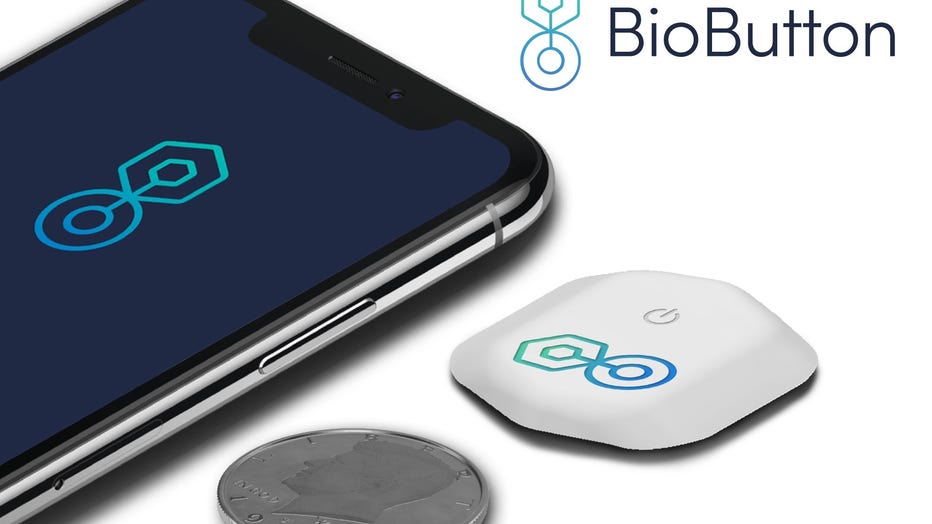Oakland University requires students wear BioButton for COVID-19 tracking in order to live on campus
(FOX 2) - With the fall semester just weeks away, Oakland University is announcing several new steps to keep students, staff, and faculty safe on campus, one of which is requiring residents wear a BioButton, which monitors vitals including temperature in real-time.
The university posted its steps to bring students back on campus, including how it would handle residence halls: students will be tested upon moving in, must wear the BioButton, they'll get a move-in kit when they move in, and must identify a plan if they become sick. You can read the full list at the bottom of this story.
The BioButton is a sticking point for many students, as more than 2,000 have signed a change.org petition asking the university to make the BioButton optional, saying that many students were already hesitant to be tracked on campus.
"A large portion of students feel that this in violation of their privacy and some students have stated that their rejections of this idea come from a religious basis. Moreover, the new idea (evidently a large adjustment) was not mentioned but instead put further into the website for individuals to stumble across," the petition reads.

BioIntelliSense's new BioButton™ for 90-days of continuous wireless temperature and vital signs monitoring on a coin-sized disposable medical device. Image courtesy: BioButton
The University defended the BioButton on its site, saying the data can only be seen by the wearer and won't be shared with others.
"In order to lower the risk of virus outbreaks on campus a BioButton screening tool is being used. It provides additional information for health screening. The button will be used in conjunction with the daily health assessment to determine if you are able to participate in campus activities. The individual data will remain private to the wearer and is not shared with others," the University said on its website.
The BioButton is the size of a coin and measures temperature, respiratory rate and heart rate at rest, body position, sleep and activity state for 90-days.
Beyond the residence halls, Oakland University set out plans for all students including a promise to respond quickly, screen people daily, and test symptomatic students, faculty, and staff.
Class sizes will be much smaller with students in the same class have in-person lessons on different days, rooms are being redesigned for social distancing, and classrooms will have regular sanitization with antimicrobial treatment. You can read more about the University's plan on their site.
Residence Hall requirements:
- Resident students must undergo COVID-19 testing prior to move-in.
- Residents in residence halls must wear a BioButton.
- Resident students will be provided at move-in with a health kit that includes a thermometer and a washable face cover.
- Residents must identify the plan of action should they become ill with COVID-19, e.g. identify off-campus location where they will stay if off-campus quarantine is recommended.
- Residence hall buildings and room occupancy numbers will be adjusted to provide a safe learning and living environment.
- Plexiglass shields will be installed at each front-facing, customer-service-centered desk areas.
- Hand sanitizer will be provided at all front-facing, customer-service-centered desk areas. Frequency of sanitization and cleaning of high-touch areas such as public lounges, bathrooms, printing stations, ATMS and computers will be increased.
- Social distancing will be enforced. Public lounge furniture will be spaced accordingly to encourage proper social distancing.
- Food-service delivery stations and dining periods will be monitored at respective residence hall cafeterias.
- Guests will not be permitted in the residence halls or apartment complexes during the fall 2020 (and potentially winter 2021) semester. Visitors may be entertained in public lounges.
- Isolation and quarantine rooms have been set aside on campus.

